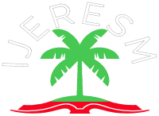Influencer Marketing as Emerging Promotional Tool in Modern Era and Opportunities to Uprising Sales
Dr. A. B. Mishra
Prof. Kshirod Chand
Mr. Kapish Kaith
Associate Professor, International Institute of Management Studies, Pune
Assistant Professor, International Institute of Management Studies, Pune
Student, International Institute of Management Studies, Pune
Abstract: The increasing impact of social media for big brands nowadays are preferring influencer marketing over the traditional marketing techniques. Influencer advertising is a methodology that recognizes influential individuals on social media who impact a brand’s industry or target crowd. In an influencer advertising technique, a brand shapes an association with the influencer wherein the influencer consents to open their crowd to the brand’s informing or substance. Influencer marketing has become dramatically throughout the long term and the objective gathering for this promoting procedure is expanding step by step. Digital ad campaigns and online sketches made by the influencers get viral in no span of time. With hashtags, makes reference & other keywords the name of the brand stays in limelight for a longer period of time & impacts deeper in the minds of the audience. The research paper is based on secondary data. In this paper, the researcher has studied influencer market for promotions and various opportunities for market expansion.
Keywords: advertising, branding, influencer marketing, market expansion, social media
References:
- Boerman S.C. and van Reijmersdal E.A., “Disclosing influencer marketing on YouTube to children: the moderating role of para-social relationship,” Frontiers in Psychology, January, Vol. 10, pp.1–15, 2020. https://doi.org/10.3389/fpsyg.2019.03042.
- Chapple C. and Cownie F., “An investigation into viewers’ trust in and response towards disclosed paid-for-endorsements by YouTube lifestyle vloggers,” Journal of Promotional Communications, Vol. 5, No. 2, pp.110–136, 2017.
- Smit C.R., Buijs L., van Woudenberg T.J., Bevelander K.E. and Buijzen M., “The impact of social media influencers on children’s dietary behaviors,” Frontiers in Psychology, January, Vol. 10, pp.1–6, 2020. https://doi.org/10.3389/fpsyg.2019.02975.
- Sokolova K. and Kefi H., “Instagram and YouTube bloggers promote it, why should I buy? How credibility and parasocial interaction influence purchase intentions,” Journal of Retailing and Consumer Services, September 2018, Vol. 53, p.101742, 2020. https://doi.org/10.1016/j.jretconser.2019.01.011.
- Veirman M.D. “What is influencer marketing and how does it target children?” A Review and Direction for Future Research, December, Vol. 10, 2019. https://doi.org/10.3389/ fpsyg.2019.02685.
- De Veirman M., Cauberghe V. and Hudders L., “Marketing through Instagram influencers: the impact of number of followers and product divergence on brand attitude,” International Journal of Advertising, Vol. 36, No. 5, pp.798–828, 2017. https://doi.org/10.1080/02650487. 2017.1348035.
- Evans N.J., Phua J., Lim J. and Jun H., “Disclosing Instagram influencer advertising: the effects of disclosure language on advertising recognition, attitudes, and behavioral intent,” Journal of Interactive Advertising, Vol. 17, No. 2, pp.138–149, 2017. https://doi.org/10.1080/15252019.2017.1366885.
- Ge J. and Gretzel U., “Emoji rhetoric: a social media influencer perspective,” Journal of Marketing Management, Vol. 34, Nos. 15–16, pp.1272–1295, 2018. https://doi.org/10.1080/0267257X.2018.1483960.
- Gorry G.A. and Westbrook R.A. “Winning the internet confidence game,” Corporate Reputation Review, Vol. 12, No. 3, pp.195–203, 2009. https://doi.org/10.1057/crr.2009.16.
- Hendriks H., Wilmsen D., van Dalen W. and Gebhardt W.A., “Picture me drinking: alcohol-related posts by Instagram influencers popular among adolescents and young adults,” Frontiers in Psychology, January, Vol. 10, pp.1–9, 2020. https://doi.org/10.3389/fpsyg.2019.02991.
- Trivedi J. and Sama R., “The effect of influencer marketing on consumers’ brand admiration and online purchase intentions: an emerging market perspective,” Journal of Internet Commerce, vol. 19, no. 1, pp.103–124, 2020. https://doi.org/10.1080/15332861.2019. 1700741.
- Van Driel L. and Dumitrica D., “Selling brands while staying ‘authentic’: the professionalization of Instagram influencers,” Convergence, 2020. https://doi.org/10.1177/ 1354856520902136.
- Huang X., Chen D., Wang D. and Ren T., “Identifying influencers in social networks,” Entropy, vol. 22, no. 4, 2020. https://doi.org/10.3390/E22040450.
